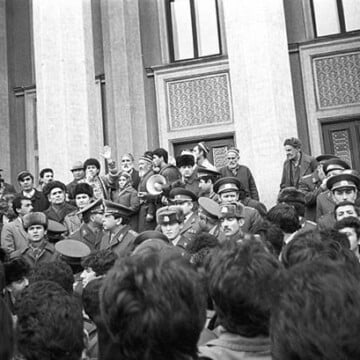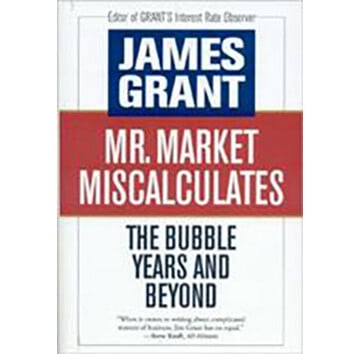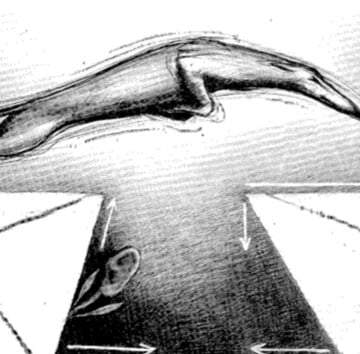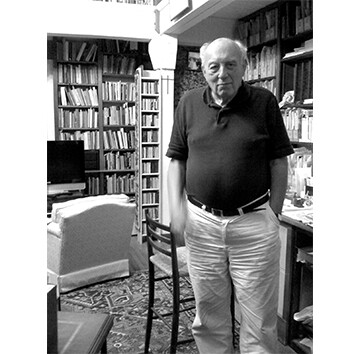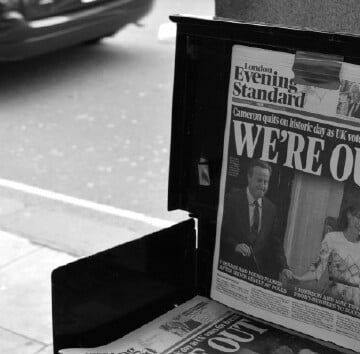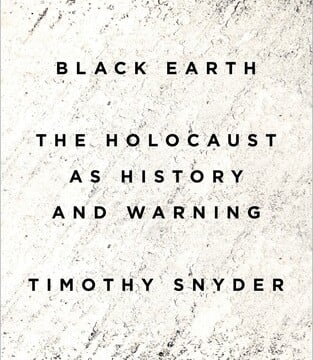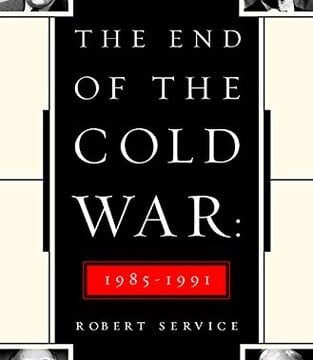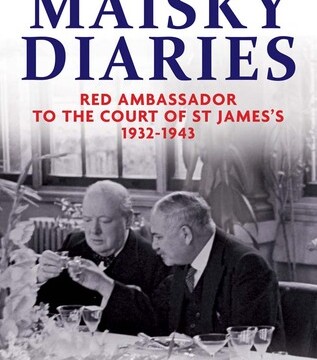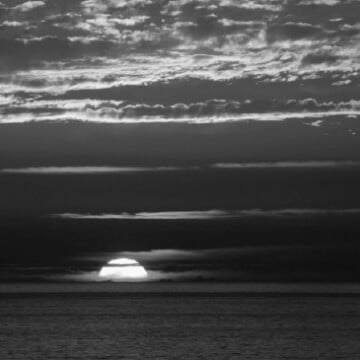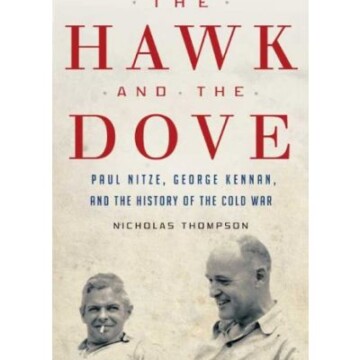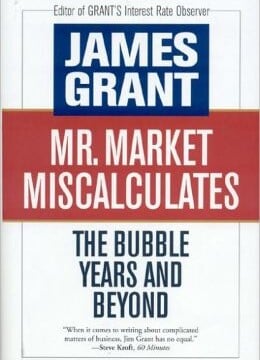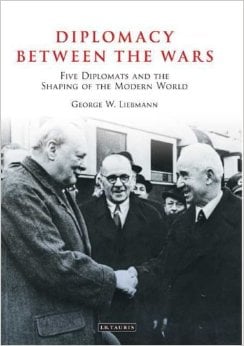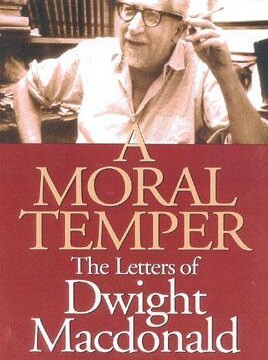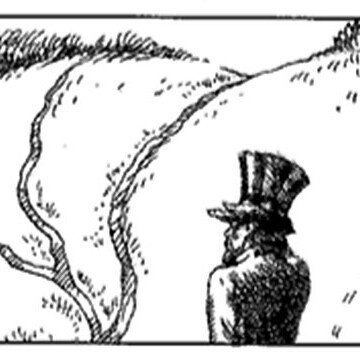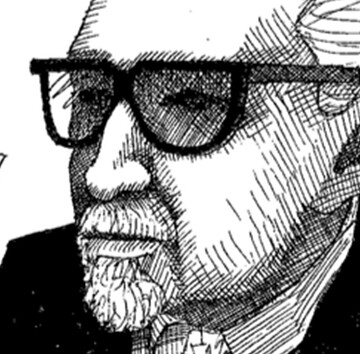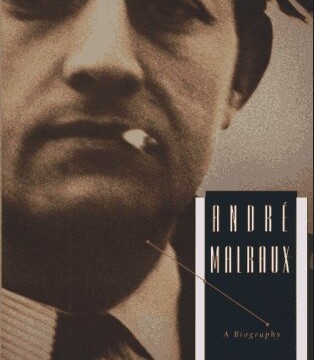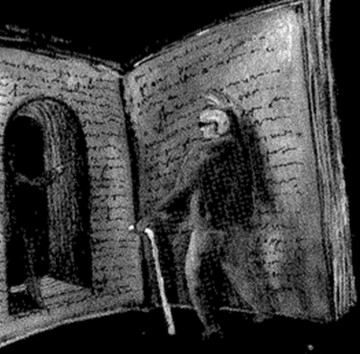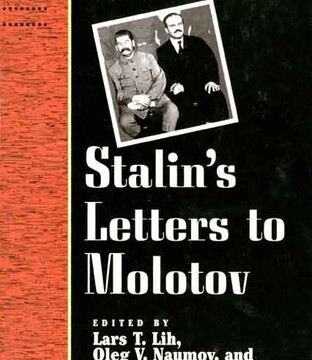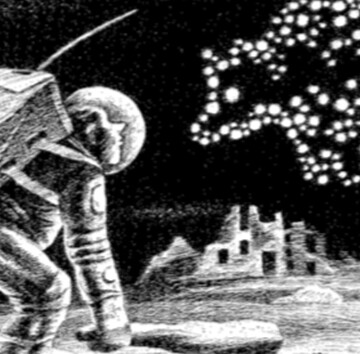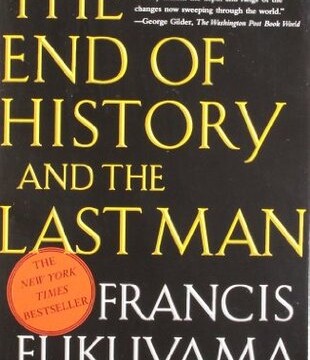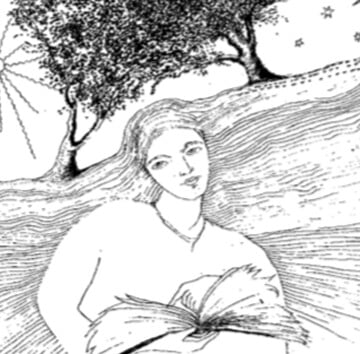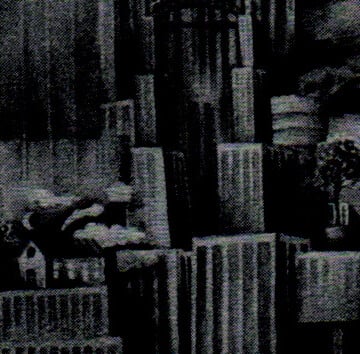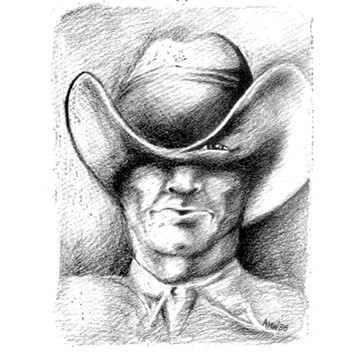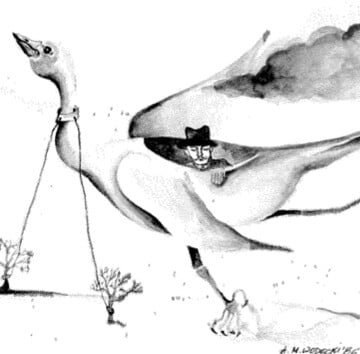John Lukacs dissects the self-important claim that after the fall of the Soviet Union, world history would culminate in the inevitable acceptance of the American “liberal democratic” model worldwide.
Author: John Lukacs (John Lukacs)
The Reduction of Certainty
[This review first appeared in the June 2009 edition of Chronicles.] One should begin a review with a summation of a book and then of its author. The reverse is warranted in this case. James Grant is an extraordinary American, a financial expert whose mind is enriched by his knowledge of history. His previous book...
Grand Designs
This piece first appeared in the December 1985 issue of Chronicles. “Liberty, the daughter of oppression, after having brought forth several fair children, as Riches, Arts, Learning, Trade, and many others, was at last delivered of her youngest daughter, called FACTION.” —Jonathan Swift There are many things wrong with this book, beginning with its title. The...
Letters From Tocqueville
From the September 1986 issue of Chronicles. “I am rich in letters. . . . “ —Horace Walpole Alexis de Tocqueville was an immensely prolific writer. His friend Gustave de Beaumont wrote that “for one volume he published he wrote ten; and the notes he cast aside as intended only for himself would have served...
Clap & Trap
From the December 1992 issue of Chronicles. I had heard about, but not read, “The End of History?” Francis Fukuyama’s star-burst essay published in 1989; but I felt a twinge of sympathy for him as his critics chortled and pointed at history rumbling anew: people dancing atop the Berlin Wall, the Soviet Union falling to...
To Hell With Culture
From the September 1994 issue of Chronicles. “The corruption of man,” Emerson wrote, “is followed by X the corruption of language.” The reverse is true, and a century later Georges Bernanos had it right: “The worst, the most corrupting lies are problems wrongly stated.” How pertinent this is about so many matters present, including the...
Surrounded by Books
Surrounded by books has been a main circumstance of my long life. So it is now, near the end of my 94th year, when I am in my large library of perhaps 18,000 books in the western wing of my house in Chester County, Pennsylvania. So it was in the beginning: I was born in...
The Condottiere
From the October 1997 issue of Chronicles. We live in an age when biography flourishes, contrary to earlier expectations. The reason for this is the decline of the novel and the rise of popular interest in all kinds of history, and biography belongs within history. The problem is “all kinds”: for appetite may be fed...
Dwight Macdonald
A Rebel in Defense of Tradition is the title of Michael Wreszin’s 1994 biography of Dwight Macdonald (1906-1982). It is a very good title, by which I mean something more than a “handle”; it is a precise phrase, a summary properly affixed to the memory of an extraordinary man. The emphasis of Wreszin’s biography is...
Public Opinion at the End of an Age
One symptom of decline and confusion at the end of an age is the prevalent misuse of terms, of designations that have been losing their meanings and are thus no longer real. One such term is public opinion. Used still by political thinkers, newspapers, articles, institutes, research centers, college and university courses and their professors,...
Dealing With Hitler
Black Earth: The Holocaust as History and Warning has received exceptional attention and nearly universal praise. Prof. Timothy Snyder’s knowledge of the holocaust is almost encyclopedic. This is his second large book devoted to the horrible history of much of Eastern Europe during World War II. His main inquiry and subject is what happened to...
The Crucial Years
The evidence of the end of the Cold War around 1990 was clearer than evidence of its beginning had been around, say, 1947. By “Cold War” we mean the conflict between the United States and the Soviet Union—not that between the United States and China, which was the outcome of civil war in the latter...
Books in Brief
Open Every Door: Mary Mottley-Mme. Marie de Tocqueville, by Sheila Le Sueur, translated by Claudine Martin-Yurth (Mesa, AZ: Dandelion Books, 340 pp., $26.95). Alexis de Tocqueville’s wife was Mary Mottley, an Englishwoman. His biographers have never written more than a couple of sentences about her. This is regrettable because Mary was an extraordinary woman, because...
Between Fear and Conceit
H.M. Maisky was the Soviet ambassador to Britain from 1932 to 1943. In June 1943 Stalin ordered him to quit London. After returning to Moscow, Maisky was posted henceforth to unimportant positions. In 1953 he was imprisoned; two years later he was released. He died in 1955. In London (and from time to time in...
End of the World of Books
The morning after Thanksgiving I completed the manuscript of my last book, which will be published by Harvard University Press—a short book, and I still had some work on it. But I had a sense of accomplishment and a day of relief, whence I had a couple of stiff drinks in my cozy living room...
Parallel Lives
Nicholas Thompson, the grandson of Paul Nitze, chose to write a biography of his grandfather, but with a restriction. Thompson thought it best to describe and compare his grandfather’s public career together with that of another public personage, George Kennan. I wonder why. Perhaps for the sake of an extensive biography. We ought not attribute...
The Reduction of Certainty
One should begin a review with a summation of a book and then of its author. The reverse is warranted in this case. James Grant is an extraordinary American, a financial expert whose mind is enriched by his knowledge of history. His previous book was an excellent biography of John Adams. It did not receive...
Diplomacy Before the Fall
The first two sentences of this fine book tell it all. “This is a text for our times. It is a celebration of diplomacy and diplomats—of an essentially extinct profession.” I shall return to this summa summarum; but first, here is my account of the contents of this book. It consists of five substantial portraits...
Russian Patriot: Solzhenitsyn’s Preoccupation With History
Chronicles has asked me “to participate in a roundtable on the contributions and legacy of Aleksandr Solzhenitsyn.” His contributions were of enormous importance. His legacy, perhaps less so. Here was a solitary man whose mind was illuminated by a sense of compelling duty: to write a truth, to cut a single clearing in a monstrous...
The End of the American Middle Class
We have now entered a new age which will not have a name or a designation until, I think, at least one or two centuries from now: But then, such is the evolution of historical terminology. Yet we should be able to recognize at least some of its apparent characteristics. One (to my old-fashioned mind,...
Thoughts on Socialism
One day, perhaps, a great history of socialism will be written. A daunting task, but not impossible, since socialism, the “ism,” is not very old—a relatively new phenomenon, during the last 200 years or even less. A history of social justice; a history of the working classes; a history of the poor—that would overwhelm any...
George Frost Kennan, R.I.P.
George Frost Kennan died on March 17 in his home—one year and one month and one day after his 100th birthday. I am now 81 years old. He was the greatest American I have known. He was (and remains) A Triumph of Character. His obituaries recorded his many achievements adequately, often with the praise that...
Education, Schooling, Learning
I do not like the word education—especially when it is not only confused with but mistaken for learning. Originally, education in English meant “bringing up.” That is not identical with schooling. A man or woman who “has been well brought up” (alas, an almost obsolete phrase nowadays) suggests something about good manners, mental or physical manners,...
Against the Horticulturalists
Dwight Macdonald died in December 1982, almost 20 years ago. I went up to New York for his funeral. There were few New York intellectuals, prominent or not, at that gathering—which, properly and decently, had something like a family atmosphere. He had been living in the very middle of New York, and, yes, he was...
To Hell With Culture
“The corruption of man,” Emerson wrote, “is followed by the corruption of language.” The reverse is true, and a century later Georges Bernanos had it right: “The worst, the most corrupting lies are problems wrongly stated.” How pertinent this is about so many matters present, including the use of the word culture. My conservative friends...
The Two Faces of American Isolationism
A Republic, Not an Empire: Reclaiming America’s Destiny is a pamphlet and a history. Some of the greatest compositions of the human mind were cast in the form of pamphlets, even when they were thrown at a public for immediate political purposes. There is nothing very wrong with Buchanan’s pamphlet, which consists of two of...
New People, New Century
During the 19th century, the United States fought five wars, of which it won three, the Indian, the Mexican, and the Spanish-American ones; the War of 1812 was a draw; and then there was the Civil War, the bloodiest war of mankind until that time and the one that proved the grand failure of the...
The Reality of Written Words
In the beginning was the Word. (Not the picture. Or the number.) We are now at the cusp of a movement into a new age when, for large masses of people, verbal images and verbal imagination seem gradually to be replaced by pictorial images and pictorial imagination. I shall attempt to describe one, perhaps seldom...
Dwight Macdonald
A Rebel in Defense of Tradition is the title of Michael Wreszin’s 1994 biography of Dwight Macdonald (1906- 1982). It is a very good title, by which I mean something more than a “handle”; it is a precise phrase, a summary properly affixed to the memory of an extraordinary man. The emphasis of Wreszin’s biography...
The Condottiere
We live in an age when biography flourishes, contrary to earlier expectations. The reason for this is the decline of the novel and the rise of popular interest in all kinds of history, and biography belongs within history. The problem is “all kinds”: for appetite may be fed by a wide variety of junk food....
To Hell With College
I ask my readers not to be shocked by the title of this essay. “To Hell With Culture” was the title of my last essay published in Chronicles, in September 1994. Readers of it saw that I was not an enemy of culture; and now I am not an enemy of higher education. I wish...
Freedom of Access
Though the “opening” of the Russian archives is supposed to be a blessing for historians, there are plenty of reasons for skepticism. To begin with, “open” is an inaccurate term. What is available is selective, for so much remains closed, many papers are suppressed, others are inaccurate, and some are even doctored or otherwise falsified....
To Hell With Culture
“The corruption of man,” Emerson wrote, “is followed by X the corruption of language.” The reverse is true, and a century later Georges Bernanos had it right: “The worst, the most corrupting lies are problems wrongly stated.” How pertinent this is about so many matters present, including the use of the word culture. My conservative...
Tiger, Tigre: The Perils of Translation
In November 1875, in a gas-lit flat over a rain-soaked street in Tours, a law student sat together with a young Portuguese widow. They were rifling through her letters. She had been a minor actress in Bordeaux and had played at the Haymarket Theatre and elsewhere. She had had an English lover who once gave...
Cold Comfort
Ambling through the Museum of the History of the City of Helsinki I find myself in a small projection room where a film about the history of Helsinki during the last 70 years is shown. It is poignant and telling. There are shots from the late 1930’s of young, smiling, large-boned Finnish women in their...
Clap & Trap
I had heard about, but not read, “The End of History?” Francis Fukuyama’s star-burst essay published in 1989; but I felt a twinge of sympathy for him as his critics chortled and pointed at history rumbling anew: people dancing atop the Berlin Wall, the Soviet Union falling to pieces, an American Army flying into Arabia....
The Patriotic Impulse
I must now, in public, repeat what I privately expressed to the directors of the Ingersoll Foundation: my gratitude for their having chosen me as the present recipient of this honorific award. And I must add another source of my gratification, which is the very phrasing of it: the Richard M. Weaver Award for Scholarly...
The Pros and Cons of Immigration: A Debate
Jacob Neusner, Graduate Research Professor of Humanities and Religious Studies, University of South Florida Martin Buber Professor of Judaic Studies, University of Frankfurt Immigration nourishes America, affirming the power of its national ideal: a society capable of remaking the entire world in the image of humanity in democracy. No country in the world other than...
American Manners
“Nothing, at first sight, seems less important than the external formalities of human behavior,” wrote Alexis de Tocqueville in Democracy in America, “yet there is nothing to which men attach more importance. They can get used to anything except living in a society which does not share their manners. The influence of the social and...
Letters From Tocqueville
“I am rich in letters. . . . “ —Horace Walpole Alexis de Tocqueville was an immensely prolific writer. His friend Gustave de Beaumont wrote that “for one volume he published he wrote ten; and the notes he cast aside as intended only for himself would have served many writers as text for the printer.”...
Broken Eggshells & Winged Seeds
“Imaging . . . is properly the work of a poet; the [rest] he borrows horn the historian.” —John Dryden Here is an unAmerican story. A young man writes a successful novel. Thousands of Americans, in the oddest places, esteem it highly. So do the most reputable publishers in New York. When he attempts the...
Grand Designs
“Liberty, the daughter of oppression, after having brought forth several fair children, as Riches, Arts, Learning, Trade, and many others, was at last delivered of her youngest daughter, called FACTION.” —Jonathan Swift There are many things wrong with this book, beginning with its title. The Liberal Mind is not what this book is about. (Nor...
